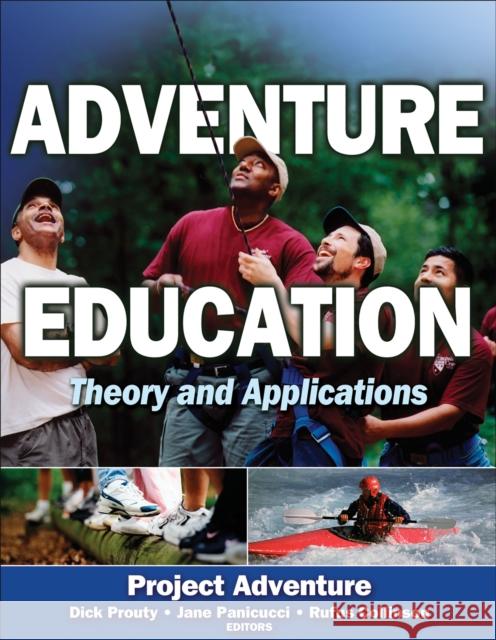Adventure Education: Theory and Applications » książka
Adventure Education: Theory and Applications
ISBN-13: 9780736061797 / Angielski / Miękka / 2007 / 264 str.
Adventure Education: Theory and Applications allows students to-get a broad view of adventure education and programming;-explore the role of games, low- and high-element courses, and outdoor pursuits in adventure education; -use key concepts, student activities, and Web-based research to enhance the learning process;-employ real-world examples to explore strategies for adventure education in a variety of settings; and-learn core skills for effective facilitation and leadership preparation in adventure programming.With Adventure Education: Theory and Applications, adventure education enters the educational mainstream. This comprehensive text is ideal for introductory adventure courses in a variety of college departments and as a reference for professionals in the field.Project Adventure, a leader in the field of facilities-based adventure learning, teams up with leading adventure educators and professionals to provide a broad view of adventure education and programming. Together, they present the foundational theories and applications of adventure education. In doing so, they-explore the role of games, low- and high-element courses, and outdoor pursuits in adventure education;-cover the core skills for effective facilitation and leadership preparation; -include student-friendly features, such as key concepts, summaries, student activities, additional readings, and Web-based research to meet students' levels of experience and enhance the easy delivery of the course; and-recommend strategies for adventure education and programming based on real-world examples that connect to a variety of recreational, educational, therapeutic, and community settings. Part I presents the history of adventure education as well as the numerous theories and philosophies that have informed its development. It explores the world of adventure in education, health care, and therapeutic, corporate, and school settings. It also provides an overview of adventure organizations and career options, which is helpful to students who are interested in pursuing the study of adventure.Part II outlines the technical and pedagogical skills needed for facilitating adventure experiences. Part III describes each adventure component, explaining how they work in the educational process. It covers facilities-based pursuits such as games, cooperative activities and initiatives, and challenge courses as well as outdoor pursuits. Some sample activities and many additional resources are provided. The final chapter covers models for programming adventure in educational, therapeutic, corporate, and community settings.For students who select careers in other fields, the leadership and team skills learned through Adventure Education: Theory and Applications will serve them well in their future workplaces. For students who do go into adventure education, this text is their guide for finding their own paths in the field.











